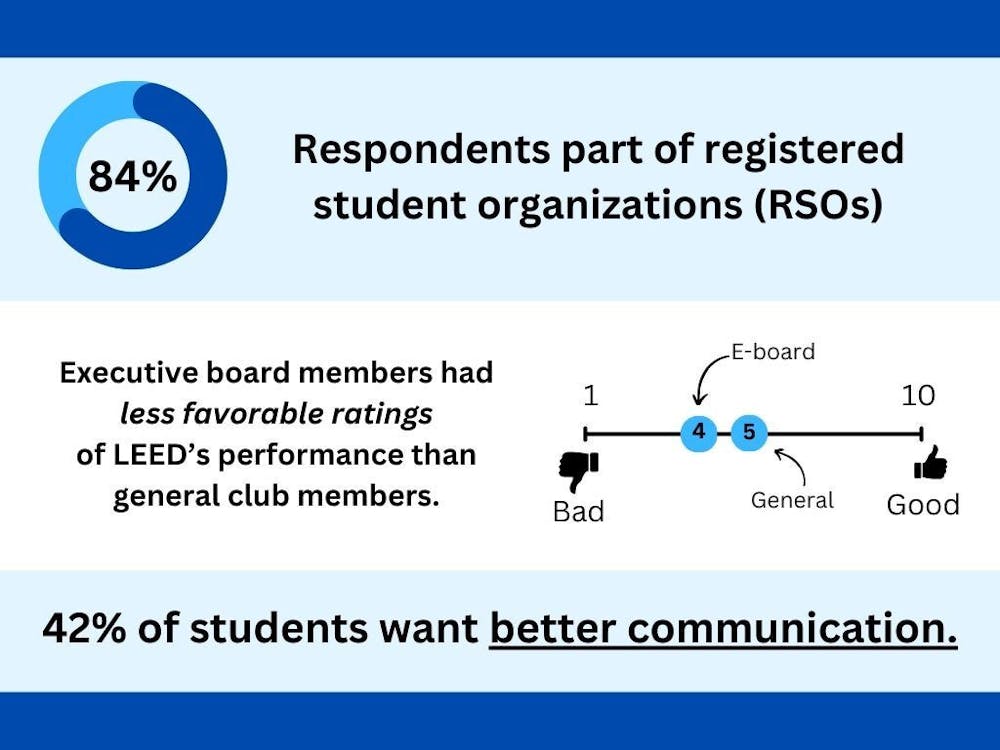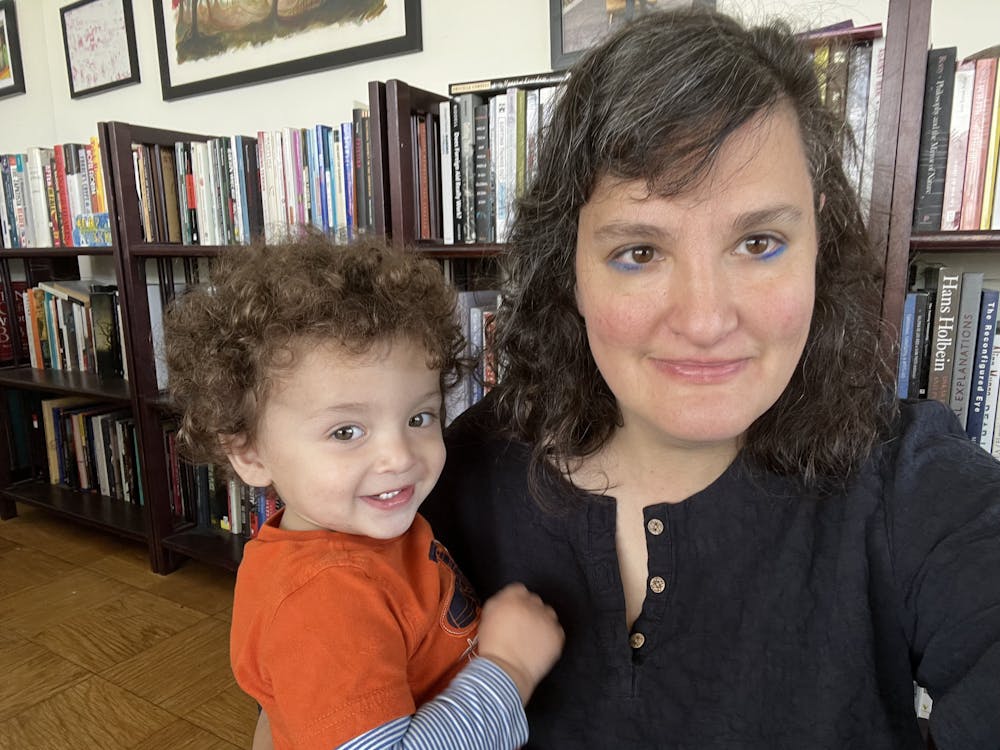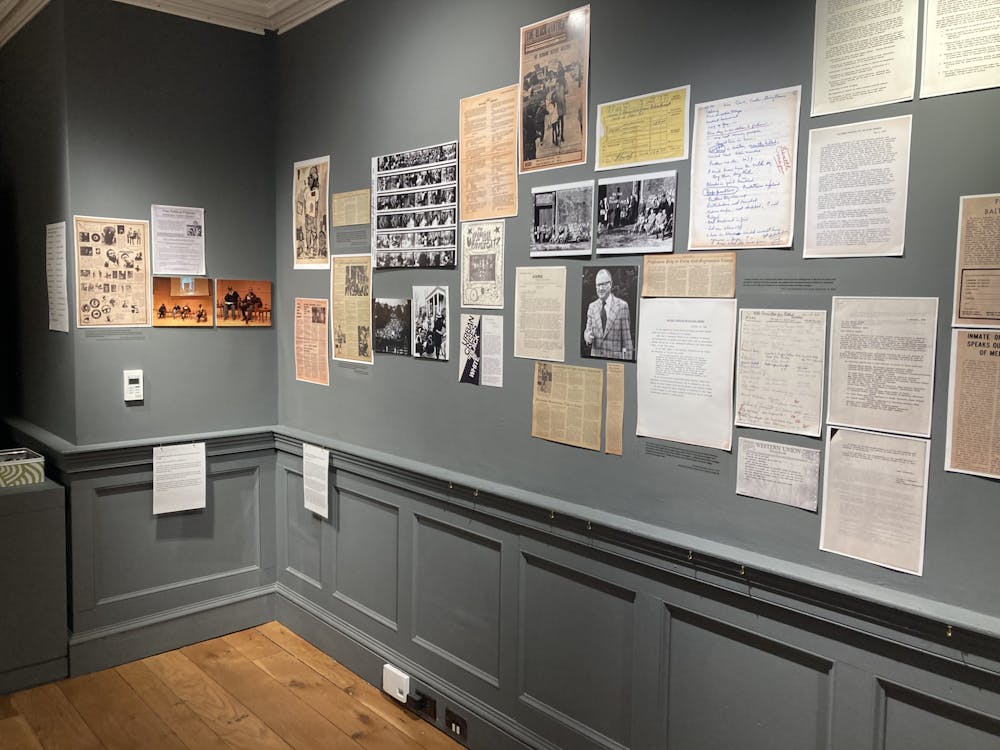Hopkins J Street U hosted Avner Gvaryahu, a former Israeli soldier and co-director of the Israeli NGO Breaking the Silence (BTS) at the Smokler Center for Jewish Life last Friday.
J Street U is a progressive student organization that advocates for a two-state solution to the Israeli-Palestinian conflict through strong U.S. leadership.
“J Street is an organization that believes strongly in the democratic future of the State of Israel,” Rabbi Debbie Pine, executive director of Hopkins Hillel, said. “We’re here to support students that support the State of Israel.”
Gvaryahu was born in a suburb of Tel Aviv to a religious Zionist family. He served as a paratrooper and staff sergeant in the Israeli Defense Forces (IDF). His experiences in the West Bank led him to become involved with BTS and begin talking about what he saw as injustices.
Breaking the Silence is an organization composed of Israeli military veterans, which aims to ignite public discourse about the occupation of the Palestinian territories by the Israeli government and its armed forces.
“We do this out of love for Israel,” Gvaryahu said. “My stories are part of a larger story — the story of a generation.”
Gvaryahu prefaced his talk by stating that his experience with the Israeli military is not representative of the IDF as a whole. However, he feels a moral obligation to share his story with those who have not witnessed the conflict firsthand.
“The same feelings that motivated me to fight — protecting our country, caring for our families and our communities — motivate me to break my silence today,” Gvaryahu said, addressing an audience of 30 to 40 people.
Members of Hopkins J Street U were impressed by the turnout.
“I think the BTS event was hugely significant. Avner presented to us the reality of everyday life in the Occupied Palestinian Territories through his eyes, and the experiences he relayed definitely inserted tension into the conversation,” Carly Greenspan, one of the vice presidents of Hopkins J Street U, wrote in an email to The News-Letter.
“But this tension is precisely what is needed to truly open up the conversation. Listening to the many narratives that this conflict has produced is only way we can gain a clearer picture of what is happening on the ground, and is therefore our only hope in moving forward,” she wrote.
One of the key moments was when Gvaryahu told the story of his first training mission, which involved taking possession of a Palestinian home.
“I don’t know if this will surprise you, but the the first time I ever interacted with a Palestinian face-to-face was when I barged into a Palestinian home in the middle of the night,” Gvaryahu said. “[I took] the head of the family — tying his eyes, tying his hands — put the family in a room and the house was ours.”
That was the first moment in Gvaryahu’s life that he felt uncomfortable with the behavior of his government. After witnessing Israeli settlers physically abuse Palestinians, Gvaryahu’s uneasiness became more pronounced.
“It was so difficult to come back, when everyone wants to hear how great you were and courageous things you did...you can’t bring that kind of filth to the shabbat dinner,” he said.
The first time Gvaryahu felt a sense of closure was when he began reading the testimonies taken down by Breaking The Silence. The stories, which were recorded by other Israeli soldiers, were a reflection of his own experience. Though many were recorded in the years prior to Gvaryahu’s service, they all recounted similar stories of humiliation and maltreatment.
“So I was thinking: I don’t know if everyone in the army agrees with the way I look at this, but I’m definitely not alone,” Gvarayhu said. “I think I realized in that second that I have to contribute to this. I have to first of all learn more myself, second of all take responsibility and then do whatever I can to change this reality.”
Gvaryahu has worked with Breaking the Silence for the past four years. The organization got its start with a photography exhibition, moved on to lecture tours in recent years and has now published a book titled Our Harsh Logic.
Our Harsh Logic is a compilation of testimonies from Israeli soldiers who served in the IDF from 2000 to 2010.
“This book is about what the occupation looked like from the eyes of an Israeli soldier,” Gvaryahu said.
The Q&A session at the end of the event was punctuated by moments of tension.
“[There] are much bloodier places [in the world],” one student said.
“It’s not about blood! The game should not be about who is suffering more,” Gvaryahu said, visibly piqued.
Other students followed suit with tough questions of their own.
Promising to talk with some of the more disgruntled audience members afterwards, Gvaryahu brought the program to a close by encouraging audience members to pass along the organization’s message.
“On our website, there are videos. Think about five people that would get really angry watching them — send it to them. Next, think about five people that would really enjoy watching them — send it to them. You can help us start this discussion,” he said.
















Please note All comments are eligible for publication in The News-Letter.